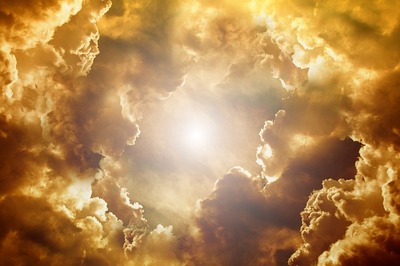Wisconsin Has Remained Cool for July, But Hot Temperatures Expected Next Week
Saturday, July 22nd, 2023 -- 8:00 AM

(By Danielle Kaeding, Wisconsin Public Radio) -While much of the southern United States has been suffering through a record heat wave, temperatures in Wisconsin have been below average this month despite a statewide drought.
But, according to Danielle Kaeding with Wisconsin Public Radio, those mild temperatures in the state may be coming to an end as the hottest conditions of the summer are expected to move in next week.
Steve Vavrus, climate scientist and director of the State Climatology Office, said July has been about a degree-and-half cooler than average in Wisconsin so far. The normal temperature is 69.5 degrees Fahrenheit, which represents the average between the daytime high and low.
"Given the fact that usually when we have major droughts, we are also having a major heat wave, this year has been unusual," Vavrus said. As of Friday, roughly 116 million Americans live in areas that have been hit by a heat wave that has lasted for weeks.
Areas of Europe, Asia, Africa and the Middle East have also been hitting record temperatures. Vavrus said what’s saved Wisconsin from the heat so far is also what’s contributing to the state’s drought conditions.
Northerly wind flows from Canada have brought dry and relatively cool air, as well as wildfire smoke. But that’s set to flip next week when winds are flowing from the southwest, according to Jon Martin, professor in the Department of Atmospheric and Oceanic Sciences at UW-Madison.
"We're bound to see temperatures flirting with 90 (degrees) every day, probably above 90 on some of the days next week," Martin said. "So that'll be probably the hottest seven-day period that we've had all summer long."
Martin said the end of July and early August tend to be the hottest days of the year, so the heat rolling in next week will not be uncommon. But the shift in conditions will feel unusual compared to the summer so far, and he added the whole state is likely to feel it.
Along with rising temperatures, he said there will also be a substantial increase in moisture, making it muggy and hot. Climate and health experts urge people to take steps to limit their risks from extreme heat, noting the elderly, children, and people with chronic health issues are most vulnerable.
Outdoor workers and those who are unhoused may also experience some of the worst effects of extreme heat due to prolonged exposure, according to Pamela Guthman, a public health nurse and board member of Healthy Climate Wisconsin.
Feel free to contact us with questions and/or comments.




